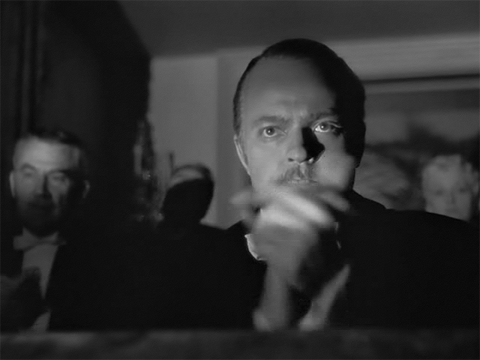
“It’s funny because it’s not that extraordinary in terms of the technique,” he said. “He used a pretty simple technique in many ways. A lot of long takes. The scene goes on, and you don’t notice how long it goes without a cut. That wasn’t that common, though a lot of filmmakers in that period did do shots like that, but not to the degree that Orson did. Years later, I said to him, ‘What do you think is the difference between doing a scene in one shot or in many cuts?’ He said, ‘Well, we used to say that’s what distinguished the men from the boys.’ The whole thing, the construction of the story, the flashback structure — it wasn’t any one thing that was unusual. It was the whole production. It’s a very depressing story. There’s not a shred of hope at the end. It’s all very downbeat, but the style of the film, the way he made it, the overlapping dialogue, the flashback structure, some surprising camera angles — the whole thing made a tremendous impression if you were sensitive to what he was doing.” - Peter Bogdanovich





